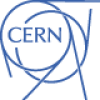 |
CERN
CERN is the world's largest particle physics laboratory. Physicists and engineers at CERN use the world's largest and most complex scientific instruments to study the basic constituents of matter – the fundamental particles. The particles are made to collide together at close to the speed of light. The process gives the physicists clues about how the particles interact, and provides insights into the fundamental laws of nature. Thousands of scientists from all over the world work together here to advance our knowledge of matter, its fundamental constituents and the forces that link them.
Founded in 1954, CERN was one of the first European collaborations. The number of Member States has now grown to 22. As it pursues its fundamental research, CERN pushes technological boundaries, trains countless scientists and, through the medium of science, contributes to the dialogue between nations.
Learn more about CERN
|
 |
W3C
Established in 1994, the World Wide Web Consortium (W3C) is an international community where Member organizations, a full-time staff, and the public work together to develop Web standards to ensure the long-term growth of the Web.
Led by Web inventor and Director Sir Tim Berners-Lee and CEO Jeffrey Jaffe, W3C's mission is to lead the Web to its full potential.
Participate in W3C
Learn more about W3C
|
 |
World Wide Web Foundation
The World Wide Web Foundation was established in 2009 by Web inventor Sir Tim Berners-Lee to advance the open Web as a public good and a basic right. This is an independent, international organisation fighting for digital equality — a world where everyone can access the Web and use it to improve their lives.
The World Wide Web Foundation very recently launched the #ForTheWeb campaign for a better free and open Web.
Join the Web We Want Movement and #ForTheWeb
Learn more about the Web Foundation
|